
Brian's Run Pod
Welcome to Brian's Run Pod, the podcast where we lace up our running shoes and explore the exhilarating world of running. Whether you're a seasoned marathoner, a casual jogger, or just thinking about taking your first stride, this podcast is your ultimate companion on your running journey.
Join us as we dive deep into the sport of running, covering everything from training tips and race strategies to personal stories and inspiring interviews with runners from all walks of life. Whether you're looking to improve your race times, stay motivated, or simply enjoy the therapeutic rhythm of running, Brian's Run Pod has something for every runner.
Brian's Run Pod
The Secret Connection Between Breathing Mechanics and Running Performance
Dr. Amy Novotny shares her revolutionary approach to running injuries through proper breathing mechanics and body positioning. We explore how this treatment method can transform running performance by addressing root causes rather than symptoms.
• Poor breathing mechanics lead to improper positioning and eventual running injuries
• Most running injuries stem from positional problems, not weakness or lack of flexibility
• When the ribcage lifts during breathing, the pelvis cannot maintain a neutral position
• Dr. Novotny dropped seven minutes from her marathon time using these techniques
• Recovery time dramatically improves with proper breathing techniques
• Children naturally use correct mechanics before developing poor habits
• Schools could incorporate breathing mechanics into curriculum from elementary age
• Learning to relax and change breathing mechanics is essential for injury-free running
• Data-driven running can sometimes disconnect us from our body's natural signals
• Techniques can be learned remotely via video consultations
For consultations or to learn more about these techniques, visit PABRinstitute.com where Dr. Novotny offers free 15-minute consultations to discuss your specific needs.
Brian's Run Pod has become interactive with the audience. If you look at the top of the Episode description tap on "Send us a Text Message". You can tell me what you think of the episode or alternatively what you would like covered. If your lucky I might even read them out on the podcast.
Instagram
So you're thinking about running but not sure how to take the first step. My name is Brian Patterson and I'm here to help. Welcome to Brian's Rompod, welcome back to Brian's RunPod, and it's me, your host, brian Patterson, to talk to you about all things running. Well, in the second part of my chat with Dr Novotny, we discussed how her technique could be used to help overcome injury, as has been a regular feature on the podcast. I discussed my recent injury and how this treatment could help in overcoming my soreness and pain. I just want to say that Amy has been a wonderful guest and I feel that I could have talked to her for at least another hour about this fascinating subject.
Speaker 1:Now, if you haven't listened to part one, then please do go back and listen to that episode. So, without further ado, let's get into the episode. So, with those, with those, with people with like, who, who have injuries, like I've been at a, uh, an injury sort of getting over past four months and I've been going to physio, um, so is this something that someone could incorporate as as part of the treatment and then get back to regular running? Be it. Uh, I mean, mine was a um, gluteus medius issue, tendon it was a tendon issue. It do you. Do you find that your treatment can can help that kind of thing?
Speaker 2:oh, absolutely, and usually people, because as we're doing and changing your breathing mechanics, we're working on getting something to activate right. So your gluteus medius issue tells me your pelvis was out of position at some point when, in whatever activity are doing. So you can strengthen it, you can stretch it, you can massage it. It's not going to heal until your positioning improves. The part of what we do is we have to get you in the correct position. So you're in neutral, you use your breathing mechanics, then you stimulate muscles that were not working, which strains your gluteus medius. So that's part of the whole process.
Speaker 2:And sometimes and I know this because I started in physical therapy sometimes the exercises and things that I used to teach people I now don't do, or I modify them because they're not as effective until the underlying issue is corrected with the positioning and the breathing. So sometimes I say, okay, those exercises we have to put off for a little bit because your body has to learn something else first, and so that's how you can get an issue like yours. You said it's been going. You've been working on it for four months.
Speaker 1:Yeah, that's right.
Speaker 2:A strain like that can be helped in a lot shorter time. Fix the positioning.
Speaker 1:Positioning has to be fixed first, otherwise it turns into a chronic issue yeah, I mean I'm, I'm better now and so, which is which is good i'd'd be, but this is about my injuries. But other people may have the same sort of issue, but they or you know injuries where that I'm still quite sore day after, you know, because I probably only started got back into running after like a couple of months because my physio said well, you know, we'll leave the running off for now and we'll do these particular exercises and then we'll get back into running. But obviously, from what you're saying is that there's not just one way to skin a cat, as it were. So no offense to cat owners out there, but I mean there is, so that there is a. There are other treatments out there, especially with reference to your breathing, which, either in conjunction with, can help with your treatment, right?
Speaker 2:yes, the fact that you say that you're you have some soreness, you know the day after, tell me that, which we already know your breathing mechanics are tightening you up. Yeah, but also tell me that the position of your pelvis is not in neutral, which it can't be Right If your ribcage is lifted up.
Speaker 2:Okay, if your ribcage is lifted up, your pelvis cannot be in a neutral position period, it's just. It's not a physically capable thing of happening. Capable thing of happening. So your tissue healed, but the underlying mechanics that caused the problem is still kind of saying.
Speaker 2:Yeah, I see what you mean, yeah result Now, sometimes with rest, sometimes yes people rest and they relax enough that the mechanics or the position goes back to normal and they feel fully rehabbed. Watching you breathe, just you know. And what you're describing shortness of breath I know your position is still off.
Speaker 1:Yeah.
Speaker 2:And it's nothing that your physiotherapist did bad or anything like that, it's just these things are very, very subtle and this is very specialized work that I'm talking about that not everyone has been trained in or knows, and so it's nothing bad against anyone. It's just your symptoms are telling the story.
Speaker 1:Right, okay.
Speaker 2:Your body are telling the story, right, okay, your body is telling the story and I'm just going based on your body and watching you. That's how I can see. Things are still off.
Speaker 1:Yeah, okay, all right, maybe it's something I can maybe pass on. Yeah, so when people come to you especially I mean, do you I understand you you're not just treating everyday people but also you're treating runners Are they kind of what's their reaction to the treatment that you're giving them? Is it sort of like, is it kind of like my gosh, you know, I didn't realize I could do this? Is it sort of like, is it kind of like my gosh, you know, I didn't realize I could do this? Or my gosh, I'm not feeling this sort of some kind of you know, not quite John the Baptist type thing, but I mean yeah, so at first the first conversation I usually have, people are like I don't really understand what you're talking about.
Speaker 2:That's usually how I start.
Speaker 1:Yeah.
Speaker 2:And then they're like okay, I'm desperate, I will try it. And so, depending on the person, many runners, so some runners, are very in tune with their body, but at the same time they also don't like change. They have their routine, they have the way they do their foam rolling, scraping and strengthening.
Speaker 2:They don't like to change. So when someone is desperate enough, they'll be like, okay, just do whatever. I will do whatever you say. And those are the people that feel it very quickly and they're like wow, why didn't I ever learn this from my physio? Why didn't I ever learn this from my chiro, my acupuncture, my doctor? They're like this feels fabulous. And I say this is how you were as a kid. Do you remember when you were a kid and you had no aches and pains? You were loosey-goosey, do whatever you want, put your foot over your head, whatever.
Speaker 1:Yeah.
Speaker 2:It's what you could do as a kid. I'm just teaching you how to get back to that state. Now there are runners and other people out there who are very rigid in their routine and don't want to change. They still feel an effect, but it takes longer. They will still feel an effect because usually they're in tune with their body, and then I have to chip away at them a little bit slower because they'll start to feel something like huh, is she making this up? Do I really feel this? Okay, I think I feel it, but I'm you know, I don't know, I don't know if she's really right. And then they eventually work through it and then they're like wow, okay, now I can feel this about my body, Now I can feel this about my breathing.
Speaker 2:And the beauty is, once you feel it and you do it, you own it, Like I can't take it away from you. You know how to do it. You can apply it as much as you want or as little as you want. And if you forget about it, everything I do is we record and I give it to the person. So I just go back and look at your videos, go through the process again. So you the all the solutions to your body right at your fingertips.
Speaker 1:You can watch it as many times as you want and just keep going through it over and over again yeah, I mean, you raised a really important point and something that has sort of you know, um, I just, you know, just thought about and that when we are children, um, you know, I remember times when you know, I sort of like run to the shops and think nothing of it or go to the store and be running, and you are so physically, you're just so free, and it's not like and it's like as we get older, due to could be the curricula at school, or it could be that life just takes over.
Speaker 1:In becoming an adult, we become more restricted. Do you think and I would like to be interested to hear what you think about this whether it's something that even in either elementary, at school and as we go through that, there should be something within the curriculum that teaches how to breathe properly and to how to have that sense of child play, as it were, that sense of child play, as it were.
Speaker 2:Yes, definitely breathe correctly and how to use that breathing to release the nervous system stress that develops every day. It has to be the two together Because, yes, breathing is fabulous, but if you are not aware on how to use that to release the tension in your body, you won't use the breathing to its maximum potential to keep you pain-free. So it's not just enough to know how to breathe correctly. Yes, that's going to help you, but it's not going to stave off all the stressors that bombard us on a daily, weekly, monthly, yearly basis. Those add up too fast and too quickly. So we have to be consciously aware of how those stressors are affecting our physical body.
Speaker 2:As soon as we have an awareness of it and you learn this skill, then every night you can sit there and be like okay, I'm going to breathe, I'm going to release. Now you just restarted your body, so the next day you're back to square one, you're good to go. And that's what kids really need to learn Now the age that they could probably start that somewhere in elementary school. They could start to learn the basics of it. They may not understand. You know all the ins and outs, but you can simplify and I've worked with little kids you can simplify it enough that they get it.
Speaker 1:Definitely by middle school they can understand the whole concept. Do you think they become more like you said? They get it or they're more in tune to it much sooner than, let's say, adults. It's like learning a new language, you know, like kids can you know, soak it up. You know learning a new language within you know, months, whereas because later life we have set rules and we've been, and to learn a new language is very difficult when we're in adults yes, and it's more that kids have had, hopefully less stress yeah, okay, yeah now it's been abused a completely different story.
Speaker 2:They're they're very hard to change. They're because they're they've had abuse and so their bodies are very locked up.
Speaker 1:Right, they're breathing very loud. Okay, I can understand.
Speaker 2:Let's say a child has not been abused. Yeah, they're going to change very quickly. So I've worked with kids. I can get rid of their pain just like that. I mean literally maybe in a session or two. As long as they're working on this and get it, they can get rid of pain very, very fast because they haven't had the additive stress over the years that adults have had. It's really. It comes down to how much additive stress have you had over the years.
Speaker 1:I know this is a running podcast, but I just think it is such a very much a subject that we can really explore and I know it's something there is kind of like a big debate, not, you know, in the US in terms of medication and addiction and that kind of thing, and it's something that is coming, you know, coming to our shores. But having this sort of for want of a better word alternative treatment, if that's what? Is this something that would be beneficial to someone who you feel, or someone feels may be going down that road?
Speaker 2:Yeah, so there are clients that I work with who have abuse, substance abuse issues or PTSD, and it's more. It's less of the physical pain, but more mental, emotional, those types of things, and I work with them as well. Anxiety is a big thing that I work with as well, so it covers pretty much everything. What we're doing is nervous system work.
Speaker 1:Yes.
Speaker 2:The autonomic nervous system influences every aspect of the body, every organ system. We have our brain, everything Our mind. So, pretty much, if you think about what issue does a person have, the nervous system typically affects it. Now, if it's something like cancer, this obviously doesn't fix the cancer, but a lot of times there are different repercussions of cancer treatment or surgeries that this does help with.
Speaker 1:A lot of mental and emotional conditions are very much helped by changing the breathing mechanics and learning how to get the body out of the fight or flight system. So, moving back onto the running, so do you, in terms of, let's say, you've gone through, someone's gone through this process, is this for someone who is training, doing this running? Is this something that they need to be thinking about when they're running, or should it be something that they become sort of like I'm second nature and they need to be thinking about? You know the process of running and what muscles are being activated?
Speaker 2:Yeah. So you want to learn this, so it becomes second nature of your existence. That's the ultimate goal. And then, as you're running, you're thinking more of okay, do I feel my hamstrings, inner thighs, quads, do I feel my legs moving me, not my back? Do I feel my shoulder blades rotating over my rib cage? So my arms swing freely? You want to think about runner stuff. And then, every once in a while, while you're running, you sprinkle in. Okay, are my breathing mechanics in a relaxed, mechanical mode, or am I lifting up my ribs? And then, as you're running, if you start to feel any tightness creep up, any pain creep up, you know your breathing mechanics are off, your position is off. So then you really need to start working on it while you're running. And part of when I'm training someone is we have to learn how to do it stationary first, but we want you to practice and learn how to do this while you're running.
Speaker 1:And.
Speaker 2:I've had many, many runners learn how to do this with running and I've paced them in 100 milers and they've done. You know, they've done it all the way through ultras, through marathons, because they realize, wow, I feel better, why not do this while I'm running? But I say you're not going to do it for the whole entire race. You enjoy the trees, the squirrels, the birds. You enjoy what's around you and then come back to it every once in a while or if you feel something start to change in your body while, or if you feel something start to change in your body.
Speaker 1:So I think when, when you're kind of starting out, is it better to let's say not, you know, for someone who is kind of who, who's quite a, a keen sort of medium pace, faster runner, do you try to get them to slow down and to just to think about all the elements of their running, as well as the breathing, and just to slow down the pace and not feel that it's, and then the speed comes with will come in time in time?
Speaker 2:Yes, a little bit of that. So first it depends on, like, if I'm just working on breathing mechanics with them, I don't change their pace right away. We just work on their breathing and having them feel certain things standing, sitting and lying down. We have to get through the process, first of them learning all the different things that I'm teaching them about their body, all the different concepts, and so people naturally will start to slow themselves down so they can feel this. But then they realize, wow, I'm running my pace, that I used to run.
Speaker 1:Yeah, yeah, okay.
Speaker 2:Feel like it. Yeah, wow, this is easy Things. My legs just turn over like, like you know, the coyote and the roadrunner. Cartoon and the roadrunner yeah is going and things just move and it's like the body's just there, it's eventually what they feel like, and so the effort becomes less. So then they learn okay, now if I put in effort my breathing will go faster. But let's see if I can calm my breathing. So the extra effort just turns into faster leg turnover, but I don't ramp myself up.
Speaker 1:And that's how it typically works which is Twickenham, which is just outside London, but there's a college very near us and sometimes you get the Kenyan runners running in a park very near us and they look like they're floating on air and I just have to sort of like you know, I just get stopped dead and gawp, you know, with my chin hitting the floor, just watching in admiration, and I suppose that's what you're aiming for, I suppose absolutely because you don't want your ribs lifting up, because as soon as your ribs lift up, when you inhale, your back arches your pelvis tips forward now you're going to be on the front of your knees or create foot problems or hip problems.
Speaker 2:So the more you can learn where your rib cage stays down, your torso can stay relaxed. Your legs just do the work and your arms swing naturally and you just run, it just feels easy, You're just floating, it just flows.
Speaker 1:You'll know the difference. So when you and this, initially when you, when you did this and then you, you did a seven minute, uh, you're you knocked off seven minutes of your best time was, was there an immediate aha movement moment? And then you thought you know, this is something I could work with, or did that take a few times?
Speaker 2:I knew it as soon as I was on the treadmill and I got off the treadmill I was like I'm not, I'm not tight, I don't have to stretch, I don't have to scrape, I don't have to foam roll, and if I choose to do those, it doesn't hurt. That's when I knew it. And then when I did the marathon the first marathon, and dropped seven minutes, I was like whoa, I can do this for 26 miles. This is cool.
Speaker 2:I thought I could only do it for eight miles, but I can do it in a much more taxing situation. Then it was can I do it longer? And then can I do it on back-to-back fast marathons, and then can I do it where I do a fast marathon, a week later I do a 100-mile race. Four weeks later I did a 50-mile race. A week after that I did a marathon and then after that I did another 50-mile race, and I did it all without pain because I could get my nervous system to calm down, so my body was in neutral, the muscles didn't tighten up right, okay and and and the.
Speaker 1:The day after you didn't did, you didn't feel any soreness or pain, or or did you feel you know you, you could run maybe not the right that same distance again the following day, but maybe in a couple of days your recovery was a lot better typically I would run the next day okay.
Speaker 2:So typically sometimes, like after the hundred miler, I'd wake up a little bit stiff and the reason why is because my ability to calm my nervous system down over the course of 20-some hours. That's harder to keep up with. A marathon is much easier to keep up with and you can run the next day very easily. But for like the 100-miler, your nervous system is going to change in the course of 100 milers. I can't, I can't, I can't ward off the changes and fast enough, because there's just so much going on when you're running that distance. So but I still ran the next day, I still got up and ran a mile and I was, and then by the time I had finished that mile and worked on the breathing, I was like, okay, I can walk, and went to work and yeah, just continued on. And and I knew I was like, okay, just keep going, because another race coming up in a couple weeks.
Speaker 1:So yeah, um, we're nearly coming to the end of the podcast, but I just wanted to get encapsulate a few sort of like key takeaways from this, because this is obviously quite a very new concept from maybe for some people, because obviously they may think that, okay, going running, doing their training, if I've got a problem, I'll go to the physio, do strength, work, flexibility, that kind of thing, and haven't realized that there is this concept. So what would you tell our audience in terms of what are the key takeaways?
Speaker 2:Yes, when you have pain, it's a signal from your body to your brain that something is out of position. It doesn't mean you're weak, it doesn't mean you need more strength or it doesn't mean you need to be stretched by using external pressure on your muscles. It means something is out of position when pain crops up insidiously, obviously if you go and get hit by a car. That's completely different. Yeah, putting that out there.
Speaker 1:Yeah.
Speaker 2:So that's a big concept. If you, when you get pain, if you can start thinking that way, it will help change the way you approach your whole entire recovery and rehab. But you need to find people who also think that way, who don't just say go strengthen every muscle around that joint, because you already have muscles that are strong. You're running, you're not weak, so think about that. The position matters. The second concept is your breathing mechanics matter to your position and to your nervous system. If you're breathing where your rib cage is elevated or you're lifting up your ribs, we know your body is not in a neutral position. Your muscles cannot work in a balanced way to move you. If you're doing that, you can get through it and you can do it, but you're likely, most likely, going to have pain at some point You're going to have stiffness or tightness, so look at your breathing mechanics.
Speaker 2:And then last point is learning to relax and change your breathing mechanics when you run is one of the most useful running skills to have in your whole running career. Whether you're doing it just for fun, whether you're doing it for races, whether you're doing it professionally, learning to relax and change your breathing mechanics will help you run faster, easier, pain-free, injury-free and much, much more Do you think from?
Speaker 1:one of the ways not just from the breathing side is to just try and enjoy it, which maybe I think sometimes, maybe some people lose sight of when they're running. I know I do. Sometimes I think, oh no, I have to go three times a week or I have to run three times a week, but I know it's going to be hard. But just learning to either say to yourself from a start point, just to say I'm going to enjoy it, sort of thing.
Speaker 2:Yeah, yeah, it will help to a point.
Speaker 1:Yeah, okay.
Speaker 2:But if your underlying position and breathing mechanics are off, that will only help to a point, because you really have to have your breathing mechanics in position to help you avoid injury and pain, and it will make your enjoyment of running much, much higher, much higher.
Speaker 1:Good, good enjoyment of running much, much higher, much higher good, good um, I I? I know I didn't put this in the outline, but I'd just like to ask people about this as to what, uh, a few sort of like quick questions. Um, so, do you have a sporting icon?
Speaker 2:I always liked Roger Federer.
Speaker 1:Oh, okay.
Speaker 2:In the tennis world. He always, in my opinion, from what I've seen I don't know him personally, but he was a gentleman. He was classy, he focused on the sport. I respect that. He always, from what I know, he always seemed respectful to all the other players and for me, morals and ethics and how you treat others is the most important thing that I can think of in a person.
Speaker 1:Yeah.
Speaker 2:Yeah.
Speaker 1:And also he just seemed very I mean very graceful and it seems to be, you know, in terms of playing tennis. It again seems very effortless, which is like a lot of people who are kind of at the top of their sport. They're. It becomes second nature and you can see why they became so successful. Yeah, yeah, do you have a when you you're? Do you still run now?
Speaker 2:not at the moment. I'm currently pregnant, so not all right okay, oh well congratulations, yeah, yeah I have a little toddler and um. So at the moment now, all right, okay.
Speaker 1:So when you were running, did you have a particular favorite playlist or did you like running?
Speaker 2:you didn't run with music no music, nothing, because I wanted to listen to my body okay, all right, that's fair enough.
Speaker 1:And did you have any particular uh secret? Did you not secret, rather, the favorite part, favorite tech that you used to run with? Did you run one with a particular watch, or it was all just about you listening to your body?
Speaker 2:yep, the only thing I had on me was a phone for safety, and I would use the strava app, yeah, to just monitor runs. But other than that, I had no watches, no Garmin, no stats. I just went out and ran.
Speaker 1:Do you think sometimes that or, in your opinion, this kind of hunger for data can that inhibit sometimes people who are running or when they're trying to incorporate some of the processes as you've talked about it today?
Speaker 2:Partly. I know some people are very data driven and that helps them feel better. But when you're using like heart rate data all the time, you lose ability to sense where your. You lose the ability to sense where your perceived exertion is, and so that then can muddy how you really respond to your body. But if it helps someone run and they wouldn't run without it then I say use it.
Speaker 1:Yeah, I just want to say thank you very much for coming on the podcast. Is there anything else you'd like to add, or how can we reach you on social media or your website or anything like that, if we'd like to talk about that?
Speaker 2:Absolutely so. I'm on quite a bit of the social media. I don't do TikTok but I'm on Instagram, linkedin, facebook, all under Dry navotny. Yeah, um, easiest way is to go to my website, pabberinstitutecom. P-a-b-r institutecom. They do free consultations with people and we can talk about whatever you want to talk about for 15 minutes and they can give you advice. Or, if you want to work with me, we do that too and I work with people all over the world on zoom all right, okay, so you do do remotely.
Speaker 1:That's fantastic, okay, yeah, so I do want to thank you very much for coming on um, and hopefully you'll stick around um after after the podcast and um. I just think it's a fascinating subject and I'll certainly think about my breathing um the rest of the evening, if not for the rest of the week. I love talking to people who can offer different sort of disciplines that can help people with their running. So thank you very much.
Speaker 2:Thank you very much. Thank you for having me on.
Speaker 1:No problem, and just like to say thank you very much to Amy and we'll look forward to well, look forward to your listeners listening to me next week and listening to this podcast. Thank you very much. Bye.
Podcasts we love
Check out these other fine podcasts recommended by us, not an algorithm.
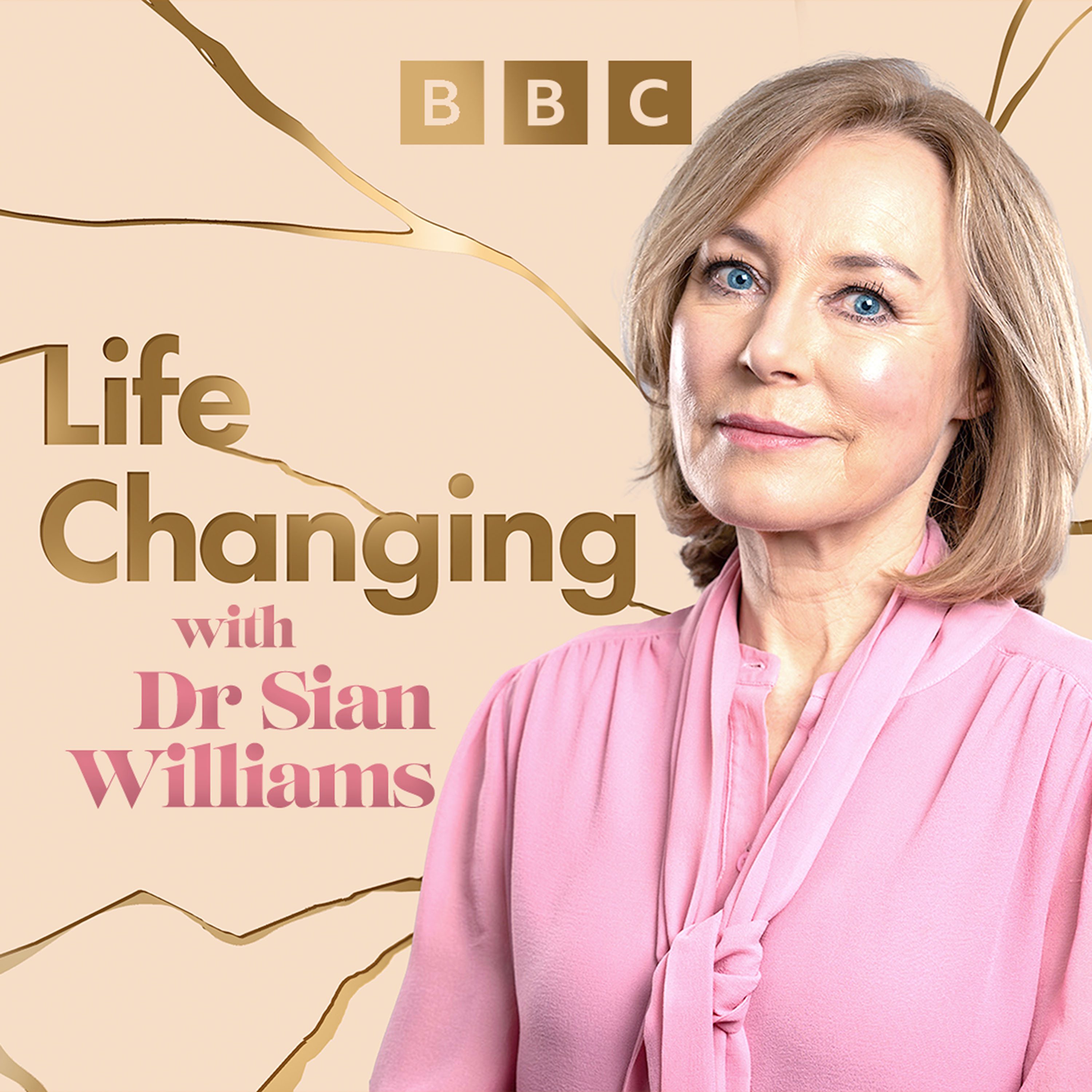
Life Changing
BBC Radio 4
Tech Life
BBC World Service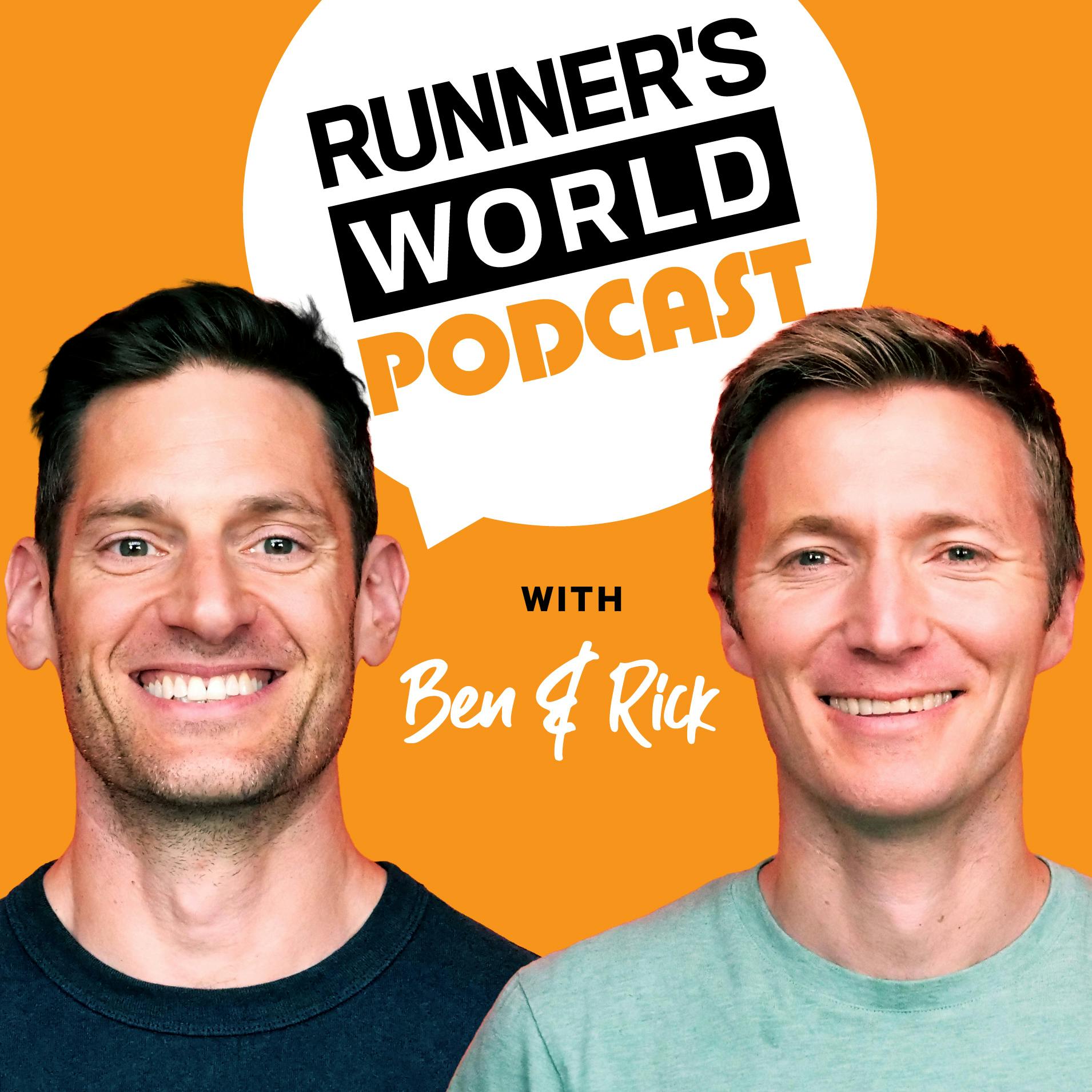
Runner's World Podcast
Runner's World UK
Buzzcast
Buzzsprout
Newscast
BBC News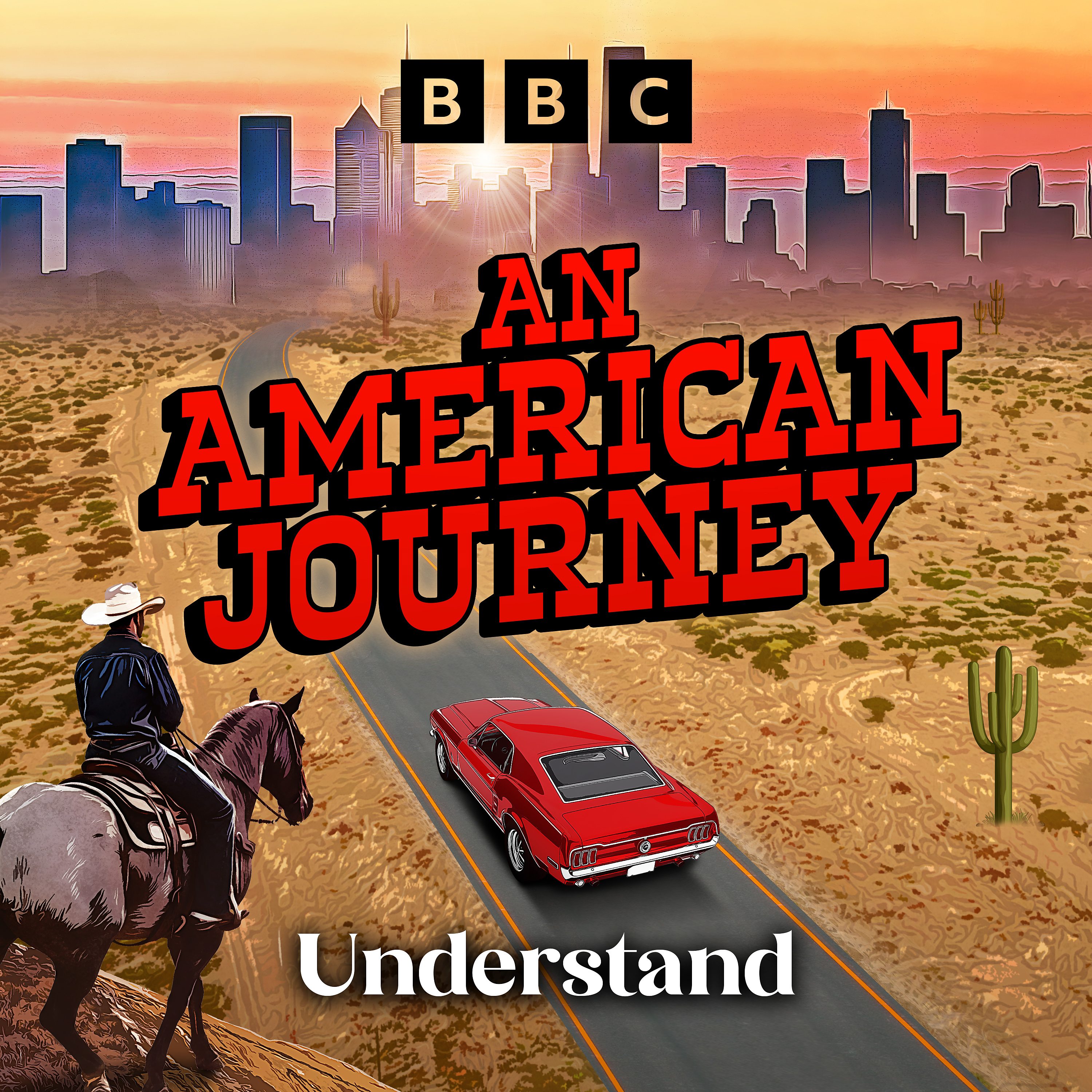
Understand
BBC Radio 4
Cyber Hack
BBC World Service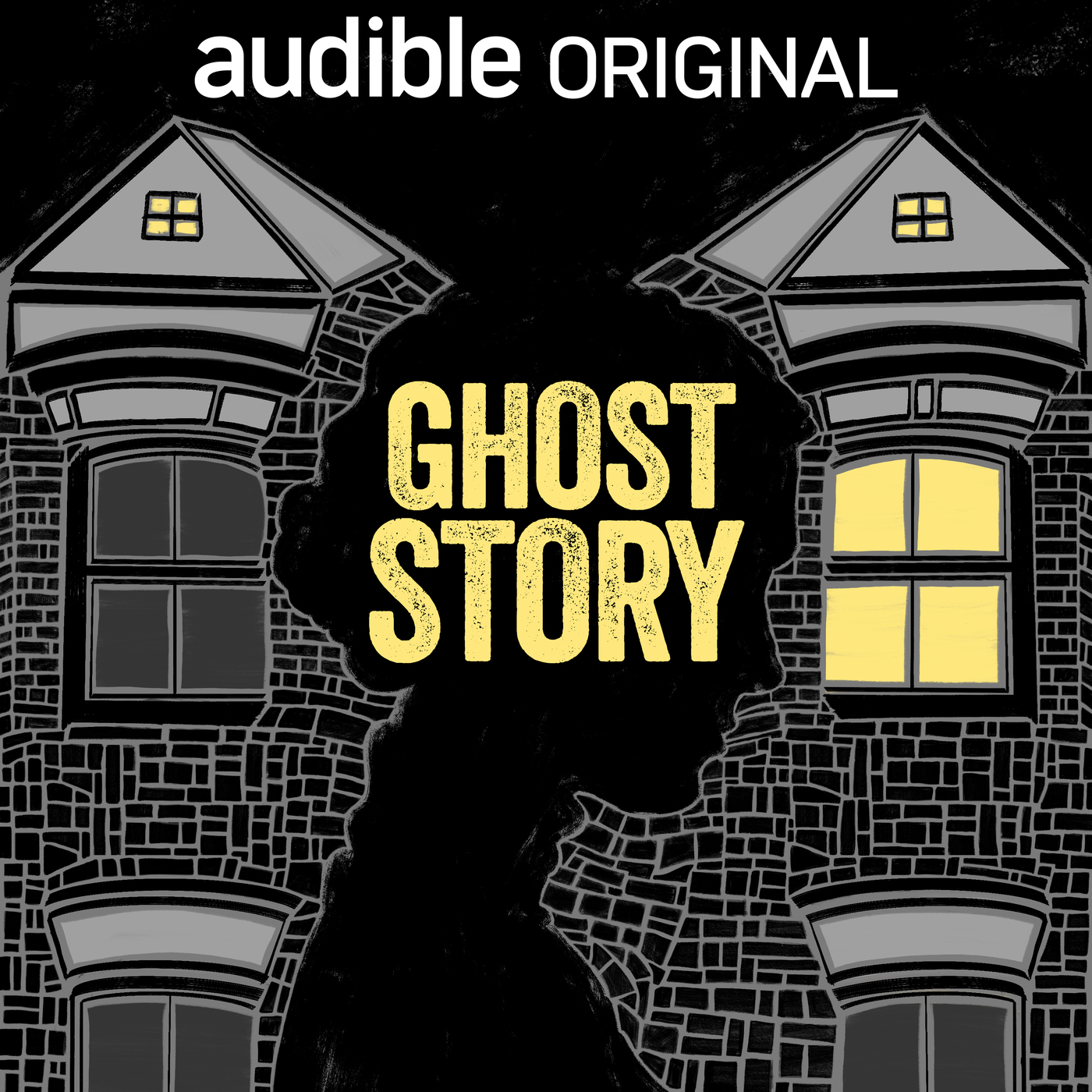
Ghost Story
Audible| Pineapple Street StudiosDiz Runs Radio: Running, Life, & Everything In Between
Join Denny Krahe, AKA Diz, as he talks with a variety of runners about running, life, and everything in between.
Uncharted with Hannah Fry
BBC Radio 4
The Global Story
BBC World Service
The Coming Storm
BBC Radio 4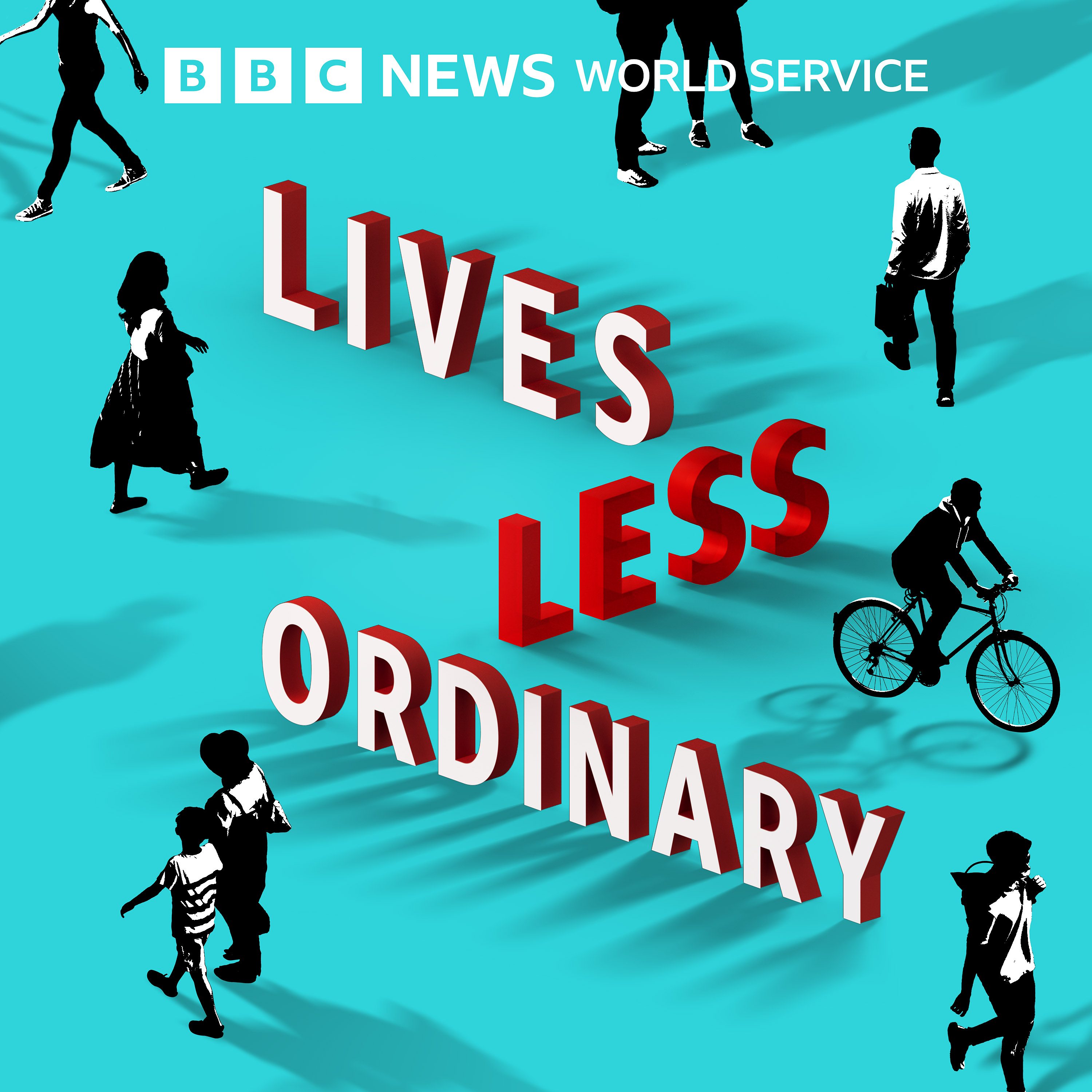
Lives Less Ordinary
BBC World Service
Do Epic Shit Today Podcast
Hannah Mulhern
The Rest Is History
Goalhanger
